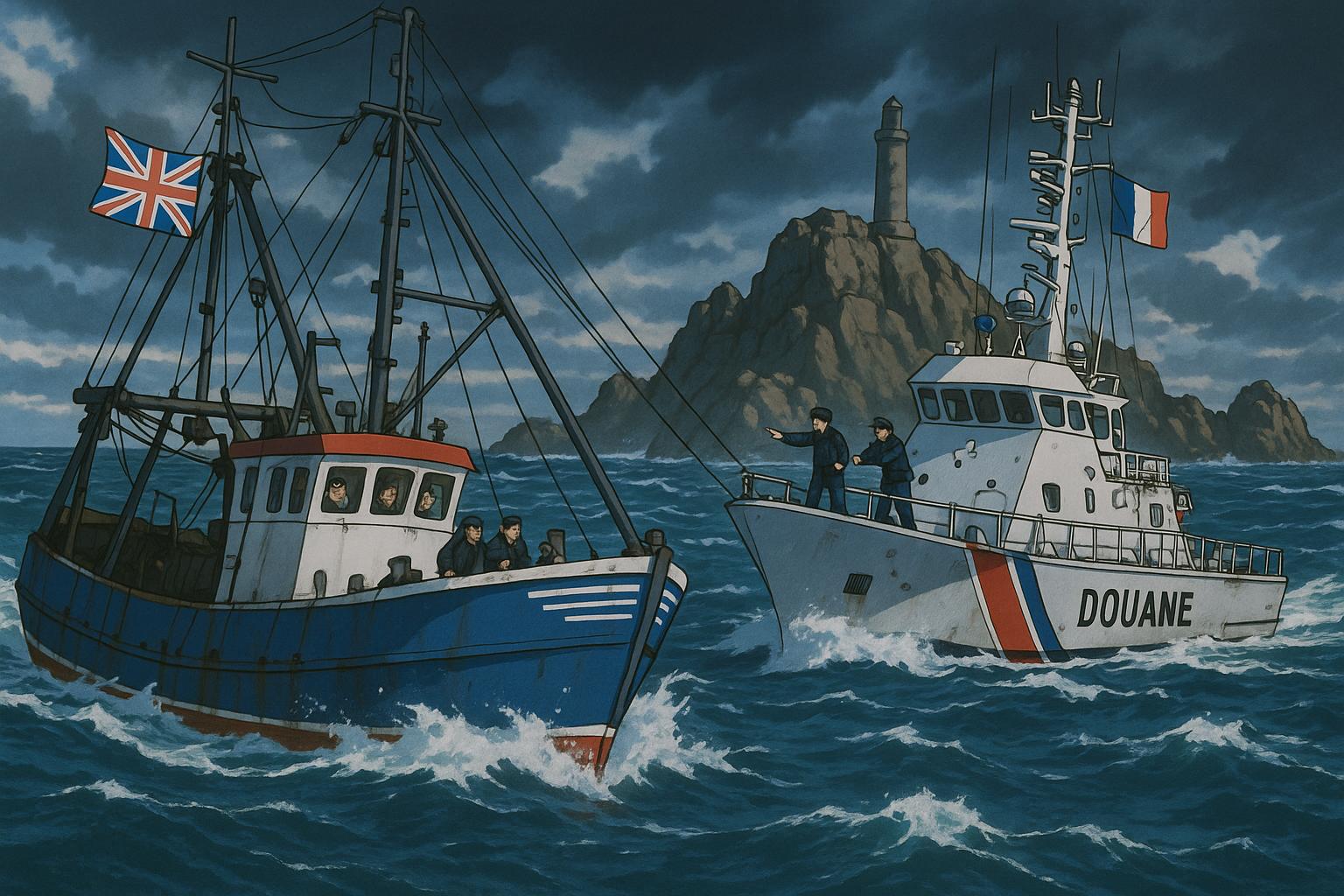French authorities have recently intensified their scrutiny of fishing activities in their waters, leading to the detention of a British-flagged trawler, the Francesca TO 80. This incident unfolded on a Saturday when the vessel was intercepted approximately 30 nautical miles—equivalent to about 55 kilometres—off the island of Batz, where it was suspected of fishing without the necessary licence. The boat, registered to an address in Truro, Cornwall, was escorted to Brest, with prosecutors initiating an inquiry into the alleged violations of the Rural and Maritime Fishing Code.
The arrest occurred just as the UK and European Union were finalising a significant new agreement aimed at recalibrating their post-Brexit relationship. This timeline adds a layer of complexity to the situation, as Prime Minister Sir Keir Starmer and EU Commission President Ursula von der Leyen had, within days, heralded a landmark deal designed to ease trade barriers and enhance cooperation across several sectors, including agriculture and fisheries. As part of this new arrangement, access rights for European trawlers to UK waters have been extended for an additional 12 years, a move that has elicited mixed reactions.
Starmer's administration has positioned the agreement as an essential step for UK economic revitalization, forecasting potential benefits amounting to £9 billion annually by 2040. Key elements of the deal include enhanced collaboration on defence and security, reduced bureaucratic impediments to food exports, and measures to increase temporary work and study opportunities for young people. However, the extension of fishing rights has drawn criticism from various quarters, including prominent fishing industry representatives, who view it as a betrayal of British fishing interests. For stakeholders like the Scottish Fishermen’s Federation, this compromise represents a significant sacrifice, made in exchange for broader trade advantages that seem to favour agricultural and retail sectors.
The ongoing tensions surrounding fishing rights reflect a broader narrative of the UK's post-Brexit realities. The fishing industry, which had been a salient point during the Brexit negotiations, now finds itself caught in a contentious debate, with many feeling that their livelihoods are being traded away for more lucrative agreements in other sectors. Industry insiders argue that while the easing of trade barriers is commendable, it should not come at such a high cost to national fishing sovereignty.
Critics of the recent deal, including former Brexit supporter Nigel Farage and other right-wing politicians, have vocally opposed the fishing provisions, framing them as an unwelcome compromise. They contend that the UK should have served its own fishing sector better, particularly given the promises made during the Brexit campaign to reclaim control over national waters.
Amidst these discussions, the British Prime Minister's rhetoric has shifted towards fiercely attacking Labour's approach to negotiations with the EU. Boris Johnson has recently accused Starmer of capitulating to European interests, suggesting that the Labour leader's strategy undermines the hard-won victories of Brexit and potentially jeopardises the future of the British fishing fleet. His characterisation of Starmer as “Two-tier Keir” encapsulates the political tensions that are likely to dominate future discussions surrounding UK-EU relations and national sovereignty.
The interplay of local fishing incidents and overarching trade negotiations presents a multifaceted challenge for the UK government. As stakeholders in the fishing industry voice their concerns, the question remains whether this new agreement will restore stability and growth, or further complicate the already fraught landscape of post-Brexit UK-EU dynamics. Moving forward, the outcomes of this incident and subsequent governmental responses could have lasting implications for the fishing industry and the broader economic landscape.
Reference Map
- Paragraph 1 - Source [1]
- Paragraph 2 - Source [2], [3]
- Paragraph 3 - Source [4], [5]
- Paragraph 4 - Source [6], [7]
- Paragraph 5 - Source [4], [5]
- Paragraph 6 - Source [2], [3]
Source: Noah Wire Services
